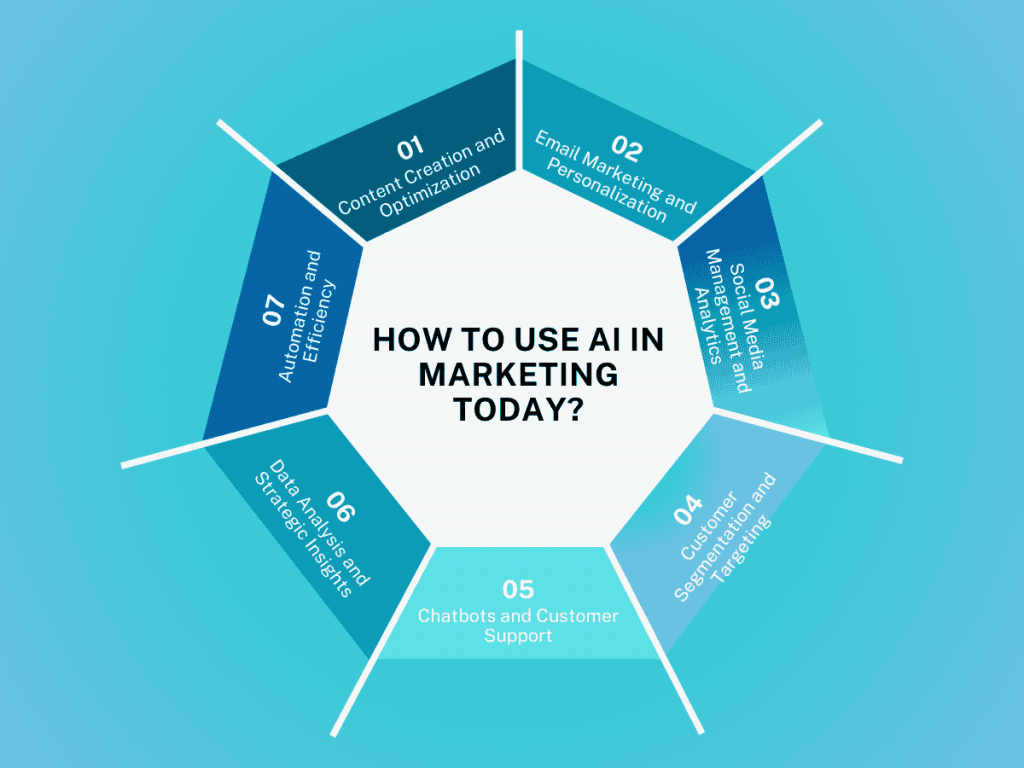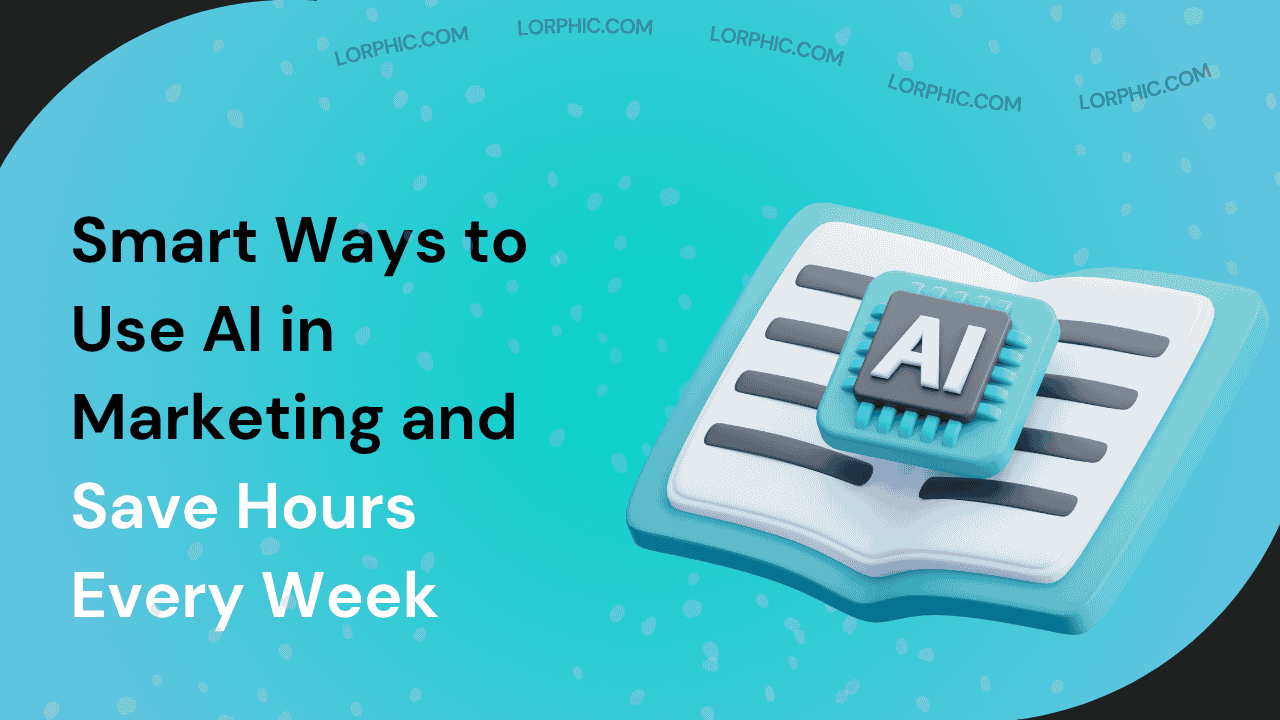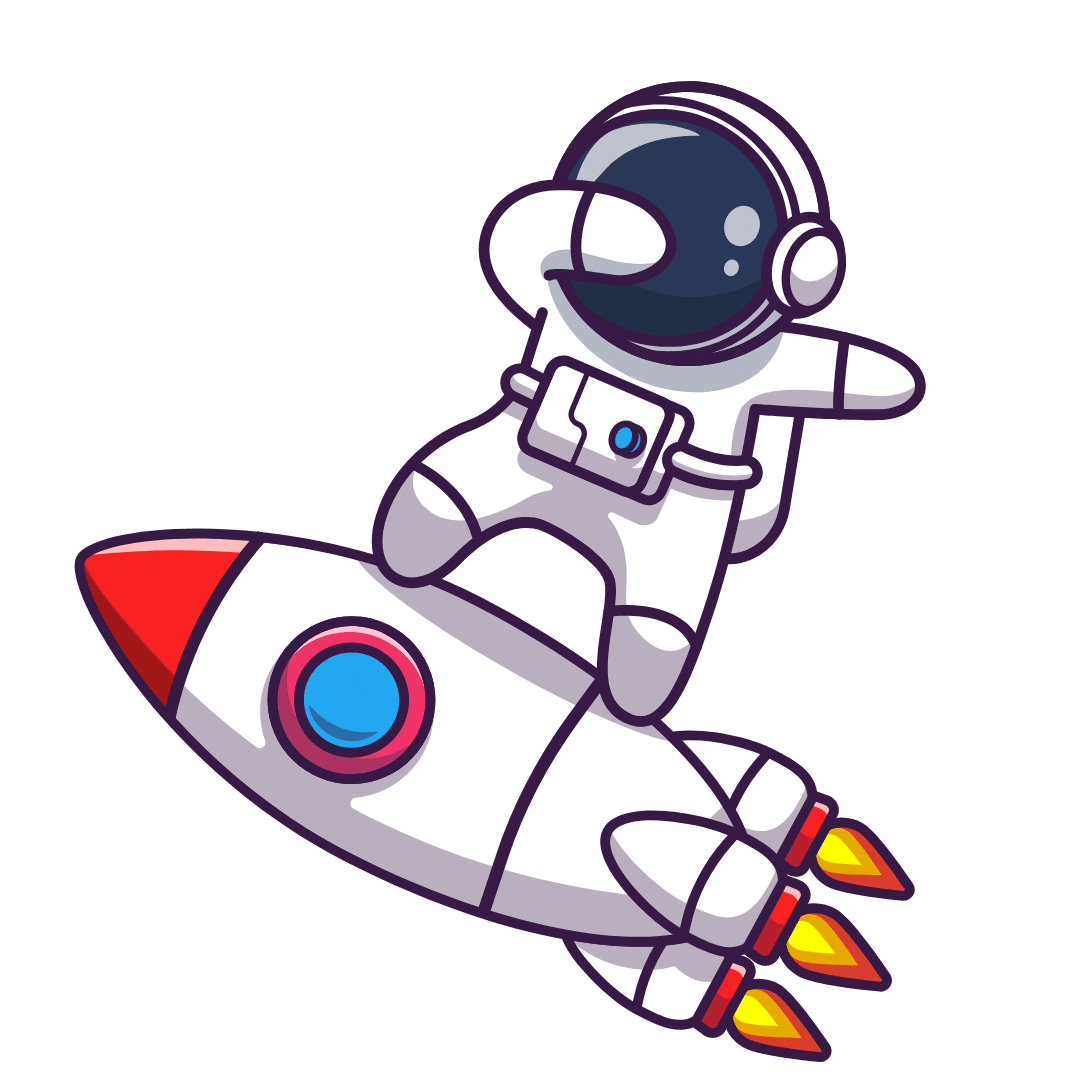In 2025, marketers are no longer just relying on intuition or manual efforts; artificial intelligence is reworking how campaigns are created, personalized, and carried out. Whether it is to create content, analyze data, or automate workflows, AI helps marketers save precious hours every week while driving better results.
Let’s dive deep into how to use AI in marketing today, what tools lead the transformation, and how you can integrate these into your own strategy for maximum impact.
What is Artificial Intelligence in Digital Marketing?
Artificial intelligence in digital marketing means using smart technology such as machine learning, data analysis, and automation to make marketing efforts more efficient and effective. It helps businesses understand customer behavior, predict upcoming trends, create personalized experiences, and improve content with very little manual work.
AI not only automates routine tasks but also learns from data over time, making marketing smarter and faster. For example, it can predict which potential customers are most likely to buy, find the best time to send emails, or even create ad content that matches each audience’s interests.
Here are some common ways AI is used in marketing:
- Predictive analytics that forecast customer behavior and future sales.
- Personalized recommendations based on user preferences and activity.
- Automated content creation for blogs, social media, and online ads.
- Chatbots that offer quick and helpful customer support.
- Sentiment analysis tools that help track and manage brand reputation.
By combining automation with intelligence, AI has become a key part of modern digital marketing strategies. It allows brands to save time, improve accuracy, and connect with customers more effectively, which is exactly why it’s becoming essential for success in 2025 and beyond.
How to Use AI in Marketing Today?
Artificial intelligence is now an essential part of modern marketing strategies, helping brands work smarter, save time, and deliver better results. From creating content to improving customer experiences, AI-powered tools make marketing more efficient by automating tasks and using data to guide every decision.
Here are some of the most effective ways to use AI in marketing today:

1. Content Creation and Optimization
AI tools such as ChatGPT, Jasper, and Copy.ai make it easier to generate ideas, write blog posts, create social media captions, or improve website content. These tools help maintain a consistent brand tone while saving hours of manual work. They also support search engine optimization by analyzing keywords, identifying trends, and recommending improvements to boost rankings.
Additionally, AI can repurpose existing content into different formats, such as turning a blog post into short social media updates or email newsletters, helping brands stay active across multiple channels with minimal effort.
2. Email Marketing and Personalization
AI has completely changed how email campaigns work. It can determine the best subject lines, sending times, and audience segments based on user behavior. Businesses can use AI to send personalized emails that feel tailor-made for each subscriber, which increases engagement and conversions.
For instance, predictive analytics tools can identify which customers are more likely to open emails or make a purchase, allowing marketers to focus their efforts where it matters most.
3. Social Media Management and Analytics
AI-driven platforms like Buffer, Hootsuite, and Sprout Social use machine learning to analyze engagement patterns, recommend ideal posting times, and even craft captions that connect with followers. These insights help brands maintain consistent engagement and create content that resonates with their audience.
4. Customer Segmentation and Targeting
AI helps marketers understand their audience on a deeper level by analyzing behavioral and demographic data. It automatically groups customers into real segments, such as frequent buyers, occasional visitors, or potential leads. This enables businesses to run highly targeted campaigns that deliver better ROI compared to generic advertising.
5. Chatbots and Customer Support
AI chatbots are now a standard feature for many websites and social media pages. They provide instant responses to customer questions, handle complaints, and guide users through the buying process. Available 24/7, these chatbots improve the customer experience while reducing the workload on human support teams.
6. Data Analysis and Strategic Insights
AI helps marketers make data-driven decisions by analyzing customer feedback, reviews, and social media comments to understand public sentiment. It can also predict future market trends, optimize ad placements, and identify high-value customers who are more likely to convert.
For example, AI can score leads based on their engagement level and intent, helping sales teams focus on prospects with the highest potential.
7. Automation and Efficiency
One of the biggest benefits of AI is its ability to automate repetitive tasks. It can schedule social media posts, manage email workflows, or handle simple customer interactions, freeing up time for marketers to focus on creative and strategic work. This not only boosts productivity but also ensures consistent performance across marketing channels.
In short, using AI in marketing today allows businesses to create smarter campaigns, deliver personalized experiences, and make faster, data-backed decisions. Whether you are optimizing content, automating customer service, or analyzing performance, AI ensures your marketing runs efficiently while saving hours every week.
Examples of AI in Marketing
Artificial intelligence is already transforming how global brands connect with their audiences. Here are some well-known examples of how top companies are using AI in their marketing strategies:
Netflix: Netflix uses AI to personalize the user experience by analyzing each viewer’s watch history and preferences. It customizes movie artwork and recommendations based on what a user likes to watch. For instance, someone who watches romantic films might see a softer, emotional image, while a comedy lover sees a fun, lighthearted version. This personalized approach helps Netflix increase engagement and keep viewers watching longer.
Spotify: Spotify relies on AI to create customized playlists and recommendations that match each listener’s mood and taste. The platform analyzes user behavior, listening history, and even location to deliver personalized content. It also uses AI to send targeted email suggestions, keeping users engaged and encouraging them to explore new music or podcasts.
Amazon: Amazon’s recommendation engine is one of the best examples of AI in action. It uses predictive analytics to suggest products customers are likely to buy based on their browsing and purchase history. This helps increase conversions, forecast demand, and improve customer satisfaction by offering a tailored shopping experience.
DreamHost: DreamHost’s AI-powered Business Name Generator helps entrepreneurs brainstorm creative and relevant business names. By analyzing keywords, it instantly generates name ideas and checks domain availability, making it easier to establish a brand presence online.
StoryChief: StoryChief’s AI marketing agent, known as William, develops customized content strategies based on a brand’s website. It identifies target audiences, suggests content pillars, tracks performance, and provides actionable insights. This allows businesses to maintain consistency while staying ahead of digital marketing trends.
Benefits of Using AI for Time-Savings
One of the biggest advantages of using AI in marketing is how much time it saves while improving overall performance. AI helps marketers work smarter, not harder, by automating tasks and speeding up decision-making. Here’s how it makes a difference:
- Automated Workflows: AI takes care of repetitive tasks such as scheduling posts, generating reports, or answering common customer questions, freeing marketers to focus on strategy and creativity.
- Faster Decision-Making: Instead of spending hours analyzing data, AI tools process massive amounts of information in seconds. This helps teams use data to make smart decisions faster and with more confidence.
- Better Targeting and Personalization: AI adjusts campaigns in real time based on user behavior. This means customers receive more relevant messages, which increases engagement and conversions.
- Improved ROI: By reducing wasted ad spend and improving campaign accuracy, AI helps businesses get more value from their marketing budgets.
- Efficient Content Creation: From researching topics to writing and optimizing content, AI tools streamline every step of the process, cutting down on time and effort.
In short, AI transforms time-consuming marketing tasks into smooth, automated workflows that boost both productivity and results.
Final Thoughts
The future of AI in marketing is full of exciting possibilities. As technology continues to advance, it is quickly becoming a key part of every marketer’s daily routine. Whether it is improving social media campaigns or enhancing email marketing, AI gives businesses powerful tools to work more efficiently and connect better with their audiences.
Although there are both advantages and challenges when using AI, the benefits clearly outweigh the drawbacks when applied thoughtfully. AI is not meant to replace human marketers; instead, it helps them focus on what truly matters, creativity, strategy, and building meaningful customer relationships.
By starting to integrate AI into your marketing efforts today, you can save valuable time every week and stay ahead in the ever-evolving digital landscape.
FAQ’s
Give some examples of AI in marketing.
There are many practical ways AI is being used in marketing today, including predictive analytics, AI chatbots, automated content creation, smart customer relationship management (CRM) systems, personalized email campaigns, social media analytics, and voice search optimization. These tools help businesses improve efficiency, engagement, and overall marketing performance.
How to use AI in marketing?
AI can be applied to marketing by automating repetitive tasks, personalizing customer interactions, analyzing large amounts of data, and optimizing campaigns for better results. A good approach is to start with a few AI tools, such as those for content generation or email automation, and then expand as your strategy grows.
What is the best AI tool for marketing automation in 2025?
Some of the leading AI marketing automation tools for 2025 include HubSpot, Jasper, Copy.ai, Surfer SEO, and Salesforce Einstein. These platforms offer powerful features for automating marketing tasks, analyzing data, and improving return on investment through smarter, data-driven decisions.
Curated by Lorphic
Digital intelligence. Clarity. Truth.




